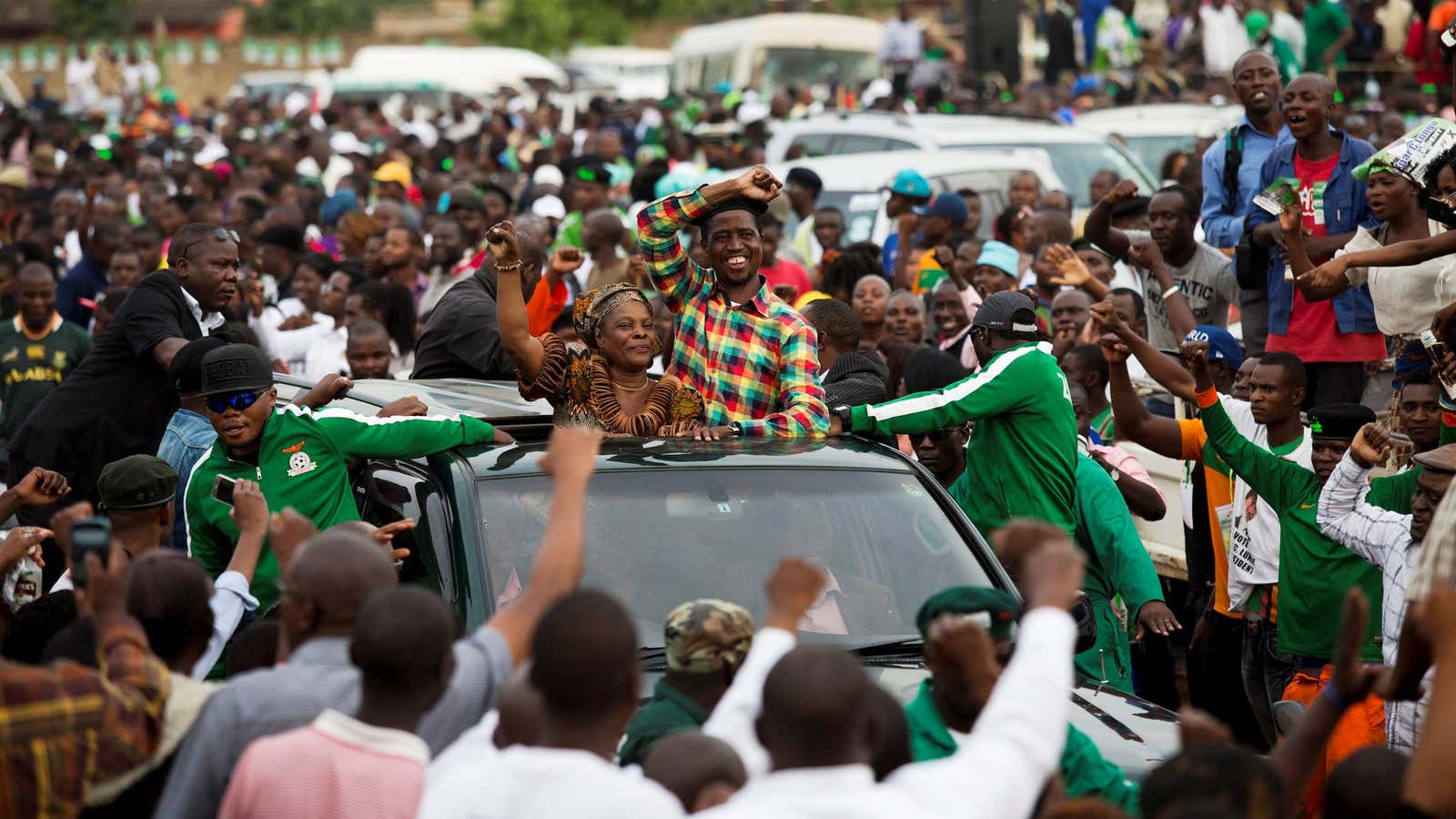Zambia goes to the polls today (Aug 11) to choose a new president, as well as lawmakers, and local mayors. They’ll also vote on whether or not to approve a new bill of rights.
Voters wrapped in blankets formed long queues outside of polling stations before they opened at 6am. So far, voting has been “calm and peaceful” and voter turnout has been high, according to Zambia’s electoral commission. The final results are expected late Saturday.
The election will be close. According to new electoral rules, the winner must gain more than 50% of the national vote instead of just a simple majority, a challenge for incumbent president Edgar Lungu, who won last year’s election with 48.3% of the vote—only 27,000 votes ahead of his rival Hakainde Hichilema of the United Party of National Development party (UPND).
If none of the nine candidates, which include Lungu and Hichilema, gain more than half the votes today, a run-off will be held within 37 days.
Today’s election also tests Zambia’s reputation as one of the most stable multi-party democracies on the continent. The country has held competitive and peaceful elections since the 1990s. Its consistent stability is a subject academics have studied.
Various methods have been employed to ensure the credibility of today’s poll. Voters are getting their thumbs marked to avoid attempts to vote twice. The ballot for the referendum on whether to give parliament power to approve a new bill of rights uses pictures to simplify the form.
But these small measures may not be enough.
Preparations for the vote have been marred by violence between supporters Lungu’s ruling Patriotic Front (PF) and Hichilema’s UNPD. Police killed one UNPD supporter at a rally in July. Authorities also closed the country’s only independent newspaper, The Post, on charges that the paper owes $6.3 million in taxes, leaving only state-run media to report the election:
There have even been reports that the ruling party has brought in nationals from Malawi and Congo to vote. Others say that the ballots—imported from a company in Dubai, after years of Zambia purchasing them from South Africa—has given PF an opportunity to tamper with them.
Incumbent president Lungu’s left-leaning party oversaw the country’s worst economic downturn in a decade. Zambia, once one of Africa’s fastest growing economies thanks to Chinese demand for its copper, is now facing rising unemployment, electricity shortages, and soaring costs of living. Zambia’s currency, the kwacha, weakened so much last year that Lungu publicly prayed for it. (It recovered six months later.)
Hichilema, a wealthy businessman, has also said he will turn to God for help righting the economy.
Both have said they are confident of outright victory, and post-election violence could be an issue. Lungu has threatened to call the national army if his rival rejects the vote result.
As researcher Danielle Resnick previously wrote this week, “[The elections] could herald a complete rupture of the existing party system and a worrying slide towards a competitive authoritarian regime. But they could also simply reflect a minor detour on the country’s road towards democratic consolidation.”
